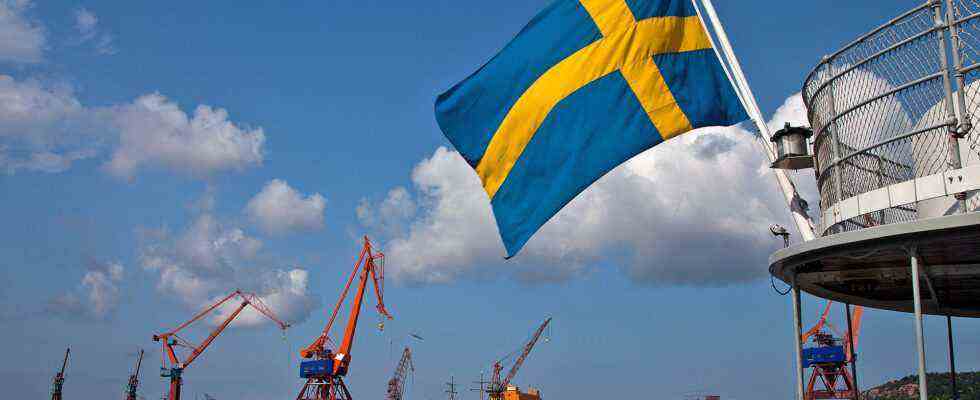Status: 06.01.2022 4:01 p.m.
Sweden is always the subject and target of disinformation. Now an agency has started work to improve psychological defense.
Sweden has started building a state agency to fight disinformation and targeted rumors. For the New Year, the Department of Psychological Defense (Swedish: Myndigheten för psykologiskt försvar) officially start their work. The head is the country’s previous ambassador to the United Arab Emirates, Kuwait and Bahrain, Henrik Landerholm. Before that, he was a member of parliament, where he chaired the Defense Committee for several years. Landerholm belongs to the moderate rallying party.
The director-general is to identify and counter campaigns to disinformation with the new authority. Sweden’s Interior Minister Mikael Damberg said in October that there will be interfaces with both military defense and civil authorities at a press conference. He is “convinced that Landerholm, with his background and experience, will lead the agency excellently”.
Growing threat
The establishment of the agency is a reaction to developments in recent years and the growing threat of disinformation. The targeted dissemination of rumors and conspiracy legends – for example about vaccines or elections – is a big problem, and disinformation is a danger to democracy, said the interior minister.
According to the government, the agency should coordinate activities of authorities and other actors in the field of psychological defense in Sweden, support these activities and strengthen the resilience of the population. An important part of the Agency’s work will be to improve institutional and social skills to identify and address unfair information practices and other disinformation directed against Sweden. Internationally, the authority is to cooperate with the EU and NATO, among others.
Various similar institutions had existed in Sweden since World War II – most recently a committee on psychological defense. With the establishment of the Swedish Civil Emergency Authority (MSB) however, in 2009 the committee was dissolved. Since Sweden has been confronted with increasing disinformation for years, its own authority has now been set up again, with its headquarters in Karlstad and offices in Stockholm.
“Last night in Sweden”
Sweden has been the subject of misleading reports for years. The then US President Donald Trump produced one of the most famous fake news when he referred to the terrible events of the previous night in Sweden in February 2017. What exactly he meant by that remained unclear at first; the Swedes reacted irritably. Trump then said his statement was based on reports of immigrants he saw on Fox News.
There are numerous other examples in which Sweden is portrayed as a kind of “failed state”. In 2017, the AfD spread false reports about an alleged travel warning for Sweden.
In the context of severe forest fires, Polish media reported that Sweden had neglected to fight such fires and preferred to spend money on refugees and gender theories. The report that Sweden had refused help from Russia to fight the fire was also wrong.
With regard to elections in particular, Swedish experts repeatedly warned against targeted disinformation.
In 2018, the civil protection authority MSB therefore reissued a brochure that was last distributed in the 1960s – and sent it to 4.8 million households. It dealt with natural disasters and reactor accidents, but also with terrorist attacks, cyber attacks on the country’s digital infrastructure, disinformation campaigns, including “fake news”, and a military attack on Sweden.
the Intelligence Service SÄPO (Security Police) warned in his Report for 2020that the risk to Sweden has increased further and has become more complex. This also includes the increasing polarization of society and the challenges posed by the digitization of political debates. Specifically, the report names attempts by Russian actors to spread fake news and disinformation and thus influence debates and decisions.
Interior Minister Damberg emphasized that the authority should not focus on certain states such as Russia or China, but should generally be able to identify and combat disinformation and targeted rumors.
Emphasizes the value of freedom of expression
It is still unclear how these goals will actually be achieved. On the website of the new authority only some information about the self-image and general goals can be found.
The government had the establishment of the authority decided in March 2021. She emphasized that freedom of opinion, freedom of the press and the media are the natural foundations of psychological defense – presumably this was supposed to ward off fears that the new authority would conduct propaganda or censor it.

